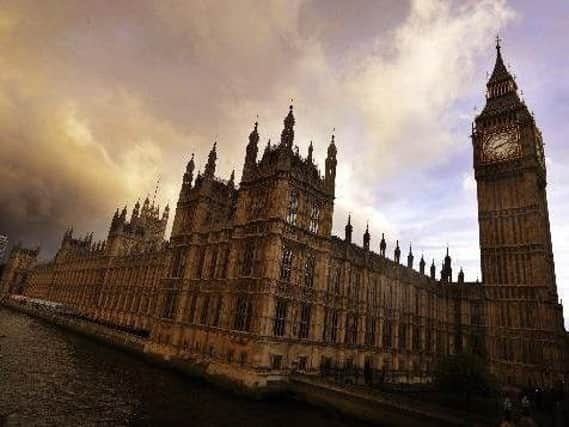Brexit moves ever closer


That will almost certainly mean the era of single farm payments in the UK is in its last few years, although the government will fund the EU structures until 2020. Beyond that is an unknown, but the odds have to favour a big reduction in support in Northern Ireland.
This is on the basis that the government will want to spend less. Even if it maintains support it is hard to see a situation where Northern Ireland could secure a payment per acre above the UK average. That would be impossible for the government to sell, and it is why farmers need to be cautious about forecasting subsidy income after 2020. As if to underline the changes ahead for the UK, the EU farm commissioner, Phil Hogan, confirmed this week that single farm payments would remain part of the reformed CAP for the EU 27. This means that while change is also on the agenda in Brussels it will be more gradual.
Advertisement
Hide AdAdvertisement
Hide AdWith Brexit now a reality, whether you were a Remain or Leave supporter, we all now have to see the departure from the EU as an opportunity. The battleground will be Westminster, and there are two key aims for the farming lobby. The first is to get workable post 2020 support arrangements. The second is to secure transitional arrangements to give the industry time to adjust to the biggest change in a farming generation. Departure from the EU is now a done deal, and we will only be spectators as the remaining EU member states develop a new CAP. Winning a deal at Westminster will dwarf all the other challenges the UK farm unions have faced over the years. They will be pushing against a Treasury that sees agriculture well down the list of deserving causes for funds.
Overcoming that opposition will demand a big joint effort by all the UK unions. If they fight each other, for example over the sharing of funds between the devolved regions, it will not produce the outcome needed. Equally if the NFU in England automatically believes it has a right to be in the driving seat for the negotiations that will not deliver the political pressure needed for a deal. The ultimate aim has to be the devolution of as much decision making power as possible. But before that can happen the unions have to work together to make sure they secure as big a pot of funding as possible, so that there is something worth dividing.
As Brexit becomes more real questions arise that go well beyond future support for agriculture. Across government, civil servants are coming to realise just how embedded the UK is with EU legislation and regulation. This is why the Great Repeal Bill is needed to ensure legislation does not stop when the UK leaves the EU. Now when looking at any announcement in Brussels about agriculture, it is tempting to wonder what will happen after Brexit.
Last week the European Commission agreed a 165 million euro package to help tackle diseases that pose a risk to member states. Included are swine fever, TB and brucellosis as well as more exotic diseases like rabies. This raises questions about how and whether the UK will do this after Brexit. It can opt out, go it alone or negotiate to be part of the EU plan, presumably making a financial contribution. The European Commission is investing close to 200 million euro a year to promote EU food. It removed much of the responsibility in this area from member states. Now the UK will have to build new structures to promote food, not least because the EU will become a competitor and because companies will have to crack the EU 27 market, of which they were automatically a part through the Single Market.
Advertisement
Hide AdAdvertisement
Hide AdThe list of challenges seems endless. It includes things like approval for veterinary drugs when EU licenses expire, approval for new crops including GM, early warning and coordination of food and animal health issues. These and many more will have to be brought into a new UK structure, not only to support agriculture but to manage the wider farming and food industry. This is not impossible, but for it to happen there will have to be a lot more drive at Westminster than is now the case.